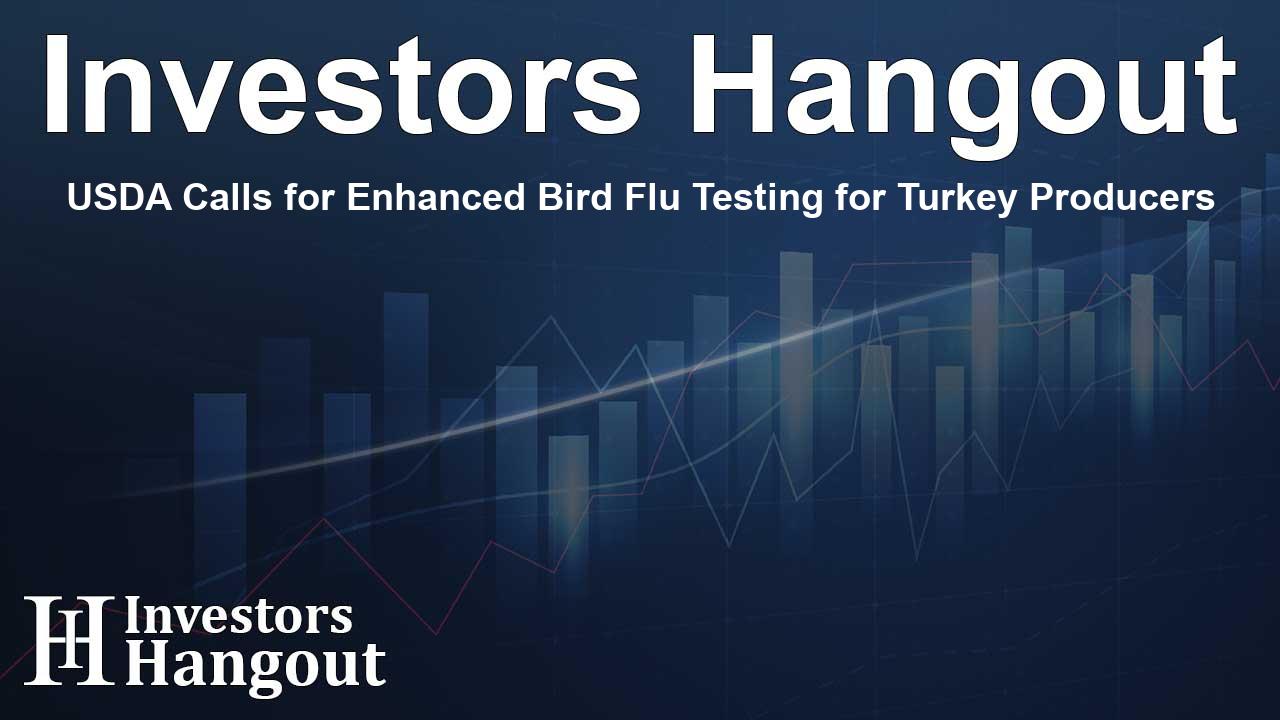USDA Calls for Enhanced Bird Flu Testing for Turkey Producers

Importance of Bird Flu Testing in Turkey Production
The U.S. Department of Agriculture (USDA) has recently advocated for heightened testing and monitoring of turkeys for bird flu prior to their slaughter. This proactive measure aims to prevent the virus from infiltrating the food supply, thereby safeguarding public health and consumer confidence in poultry products.
New Safety Measures for Poultry Producers
Key recommendations from the USDA target states like Minnesota and South Dakota, both crucial hubs for turkey production. In these regions, flocks exceeding 500 birds are advised to undergo isolation, monitoring, and testing for avian influenza within 72 hours of being processed for meat. This directive has received positive feedback from both state officials and industry stakeholders, despite not being a mandated requirement.
Recent Findings Highlight Bird Flu Risks
The impetus for these changes follows a significant incident involving Northwest Naturals, a pet food manufacturer that recently recalled its cat food products due to contamination with highly pathogenic avian influenza. The Oregon Department of Agriculture disclosed that a cat passed away after consuming the contaminated food, raising alarm about the virus's reach.
Human Cases and Public Health Concerns
Since April, nearly 70 individuals in the U.S., primarily farmworkers, have reported infections linked to bird flu. While the Centers for Disease Control and Prevention (CDC) confirmed three cases with unclear exposure sources, it is critical to note that there is currently no evidence suggesting that the transmission occurred through contaminated food.
Boosting Consumer Confidence Through Enhanced Testing
The USDA emphasizes that by increasing testing and surveillance of turkey flocks, it can significantly mitigate potential avenues for disease transmission. This approach aims not just to protect the livestock but also to reinforce consumer trust and maintain trade relationships, which can be easily disrupted by health scares.
Focus on Tornado States
Historically, Minnesota has stood out as a leading turkey producer in the country. However, both it and South Dakota have encountered bird flu outbreaks affecting various poultry flocks. The USDA noted that these states were chosen for intensified focus due to their genetic connection to the virus found in infected cats and the higher prevalence of confirmed cases in their turkey populations.
Conclusion: A Collective Responsibility
The proactive stance taken by the USDA in urging poultry producers to heighten their bird flu testing protocols represents a crucial effort in public health safeguarding. For both farmers and consumers, these measures are aimed at ensuring that turkey and poultry products remain not just safe, but also a reliable source of nourishment. As testing protocols evolve, the cooperation between state agencies and the poultry industry will be vital in navigating the challenges posed by such viral threats.
Frequently Asked Questions
Why did the USDA recommend increased bird flu testing for turkeys?
The recommendation is to prevent the virus from entering the food supply and to enhance public health safety during recent outbreaks of avian influenza.
What specific measures are suggested for turkey producers?
Producers in targeted states should isolate, monitor, and test flocks of over 500 birds within 72 hours before slaughtering.
What prompted the USDA's increased testing recommendation?
A recall by Northwest Naturals due to contaminated cat food linked to bird flu prompted the USDA to enhance monitoring efforts.
How many human cases of bird flu have been reported?
Approximately 70 cases of bird flu have been reported in the U.S., primarily among farmworkers.
What impact does this situation have on consumer trust?
Enhanced testing and transparency in poultry production are expected to bolster consumer confidence, ensuring the safety of turkey products.
About The Author
Contact Caleb Price privately here. Or send an email with ATTN: Caleb Price as the subject to contact@investorshangout.com.
About Investors Hangout
Investors Hangout is a leading online stock forum for financial discussion and learning, offering a wide range of free tools and resources. It draws in traders of all levels, who exchange market knowledge, investigate trading tactics, and keep an eye on industry developments in real time. Featuring financial articles, stock message boards, quotes, charts, company profiles, and live news updates. Through cooperative learning and a wealth of informational resources, it helps users from novices creating their first portfolios to experts honing their techniques. Join Investors Hangout today: https://investorshangout.com/
The content of this article is based on factual, publicly available information and does not represent legal, financial, or investment advice. Investors Hangout does not offer financial advice, and the author is not a licensed financial advisor. Consult a qualified advisor before making any financial or investment decisions based on this article. This article should not be considered advice to purchase, sell, or hold any securities or other investments. If any of the material provided here is inaccurate, please contact us for corrections.
